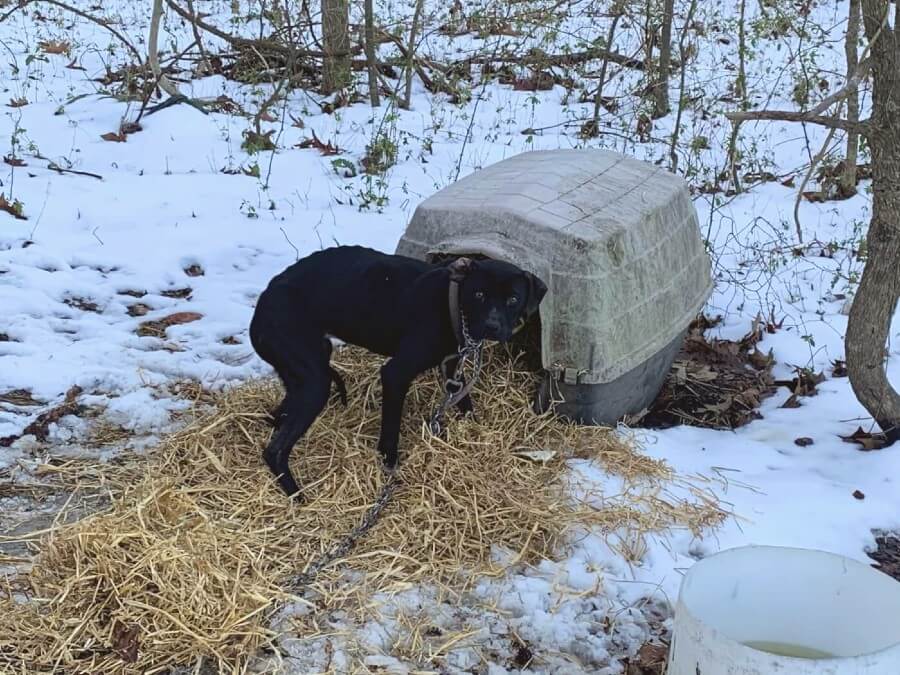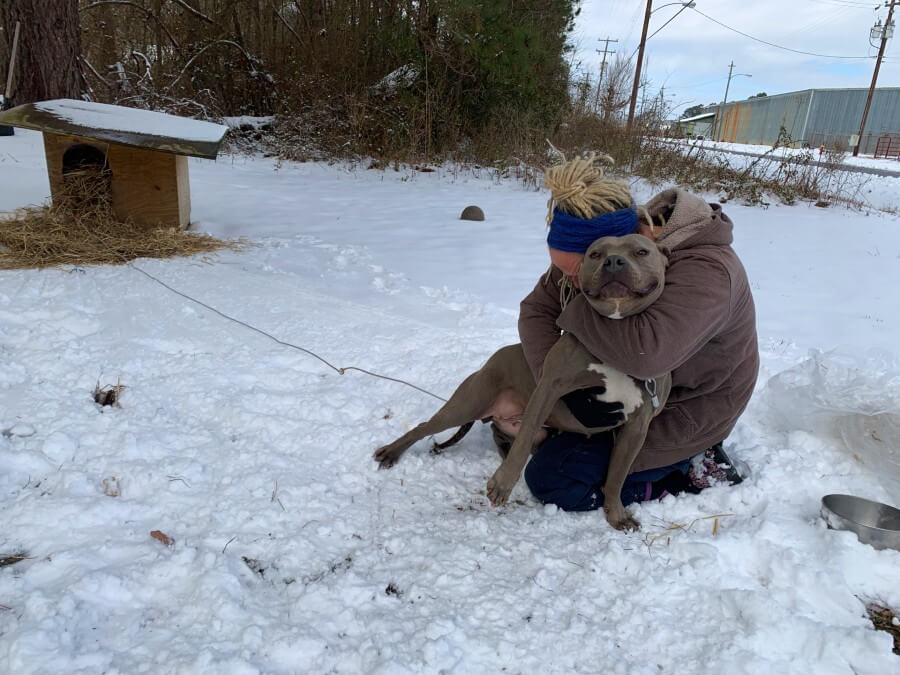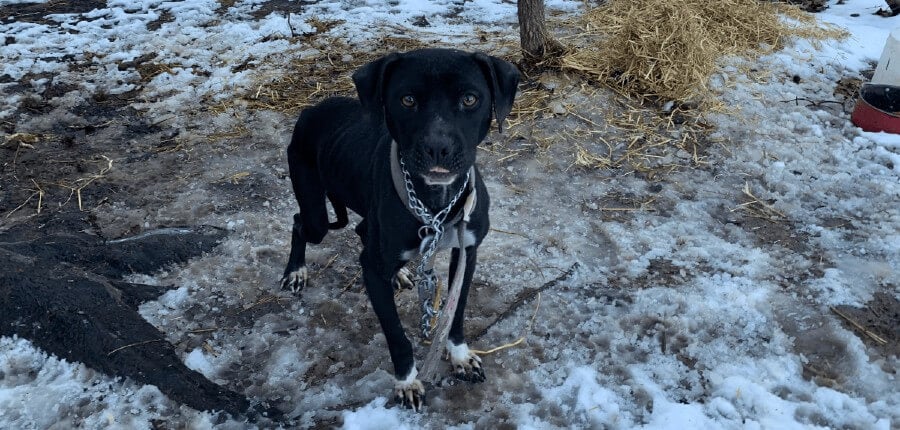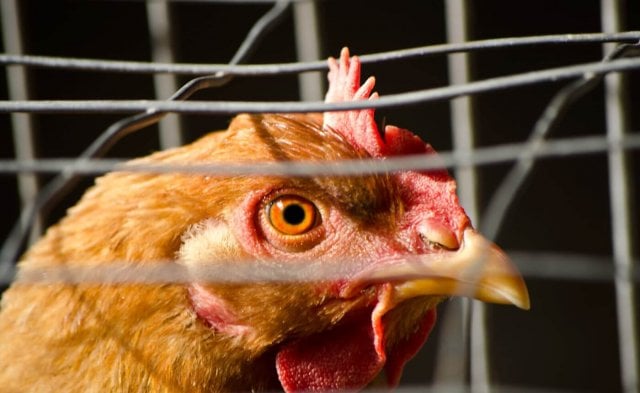A soul-crushing sight met PETA fieldworkers one frigid February day: Minnie, a black pit bull who had spent her short, miserable life chained outside, was dead. Her bone-thin body was still tethered to a tree when they found her. Five other dogs on the property were chained, penned or both, like prisoners, but they were still alive, barely. All of them were malnourished and severely neglected.

After months of advocating for their release, PETA finally persuaded the sheriff’s office to remove the survivors: Zeus, Duke, Sandy, Duchess and Billie, who became known as the “Bertie 5.” A court granted PETA custody, and for likely the first time in their lives, these dogs got to live indoors, sleep on soft beds, receive veterinary care and grooming, play with toys and be treated with respect and compassion.
Although the Bertie 5’s days of misery and neglect are over, countless other dogs are still languishing in backyards across the country without adequate shelter, food or water. This winter, they’ll endure frostbite, hunger and dehydration—and almost worse than that, the cold shoulder of those who are supposed to care for them.
As we curl up under a cozy blanket, their frostbitten feet, ears and tails will go numb. As we take a sip of hot tea, their water dishes will freeze over. As we set the table for dinner, they’ll go hungry.

Keeping dogs outdoors is cruel at any time of the year, and it can quickly become deadly when temperatures drop. All 50 states have laws that prohibit cruelty to animals, and it’s a crime to deprive an animal of food, water or shelter. If you see a dog in imminent danger (entangled, shivering, thin or lacking water or adequate shelter) or continuously chained even though it’s illegal in your area, please notify the police or animal control officials immediately.
In situations that are not illegal or immediately life-threatening, there are things you can do to ease an outdoor dog’s suffering:
Work with the dog’s owner, not against them. Many people will welcome help but may get defensive if you approach them accusingly. They may be unaware that leaving a dog chained outside poses risks like frostbite and hypothermia. Nicely explain to them that they must provide necessities—including shelter, food and water—and offer to help.
Encourage them to bring their dog inside, and provide transitioning tips. If they resist, suggest keeping the dog in the kitchen (offer to provide a baby gate), the laundry room or an enclosed porch, even if just overnight.
At minimum, dogs forced to live outdoors need a sturdy, elevated doghouse with a flap over the entrance to keep out the wind, lined with a good amount of straw. Some animal protection organizations offer straw bedding free of charge. Keep in mind that blankets and hay absorb moisture and can quickly freeze. A doghouse with icy bedding is even more dangerous than one with no bedding at all.
Many people don’t realize that dogs left outside require extra food in the winter, as they burn more calories trying to stay warm. Advise the dog’s owner to provide extra rations. Dogs can die of dehydration if their water freezes, so it must be checked frequently.
Ask for permission to visit and play with the dog and to take them for walks. Treats and toys, a gentle pat on the head and words of reassurance can warm the heart of a forlorn dog chained alone outside.

Humans domesticated dogs, so it’s our responsibility to meet their needs, including companionship, joyful experiences such as playtime and walks in the park, and protection from illness, hunger and harm. Dogs chained outside may never experience such care unless a compassionate person gets involved.
One of the best ways to help dogs this winter (and beyond) is to get the cruel practice of chaining banned in your community. Kind people across the country have lobbied successfully for tethering bans, and you can, too. Contact PETA if you need help.
It is everyone’s obligation to step in and help make life bearable for cold, lonely dogs this winter. You may be their only hope.
Melissa Rae Sanger is a staff writer for the PETA Foundation.





